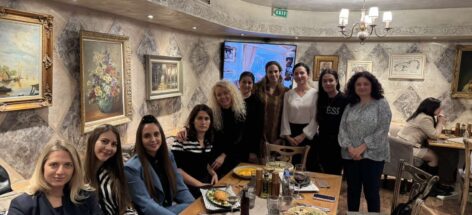news
Categories
18. November 2025
Reading Time: 3
Min.
news
How Aware Leaders Replace “Should” with “Want”
One of the biggest obstacles on the path to meaningful leadership and a fulfilling life is the relentless pursuit of what we “should” do. How often do we make decisions driven not by our own goals, but by what others expect—our colleagues, family, society, or even more often—what we think they expect?
This internal compulsion – “should” – is like invisible software that quietly determines our direction. And in a world where we are bombarded with thousands of advertising messages every day, it is easy to confuse other people’s standards with our own values.
The trap of “should” comes from the groups we belong to
Being part of a community is a natural human need. It gives us a sense of belonging, security, and shared goals. But every group—be it a team, organization, family, or social circle—forms unspoken norms about what is considered right. Sometimes these norms motivate us and help us grow. But other times, they limit our imagination, stifle innovation, and create a culture of “we’ve always done it this way.” This phenomenon even has a name—groupthink—where teams choose not the best solution, but the least controversial one. Recognizing this pattern is the first step toward acting in a way that is in sync with our personal mission and authenticity, rather than simply with collective “shoulds.”
Why we continue to “should”
The truth is that organizations are often structured to encourage predictability. Systems, processes, and even culture encourage repetition—because “that’s how we’ve always done it.” But this inertia can become a hindrance. Many companies still have practices in place that were introduced by people who are no longer there. They are followed not because they work, but because someone once said they should be. If we look closely, we will find similar “shoulds” everywhere—from sales metrics to the way we conduct meetings, even to how we think about success.
How to stop with “should”
Change begins with awareness. Let’s listen to when our thoughts begin with “I have to.” Let’s ask ourselves: Where does this expectation come from? And is it really mine? Here are four practical ways to free ourselves from the trap of “I have to” and live closer to what makes sense to us:
1. Replace “should” with “would like to”
This simple linguistic change can be surprisingly revealing. When we say “I would like to do something” but feel internal tension, it is likely that this is not our priority but an imposed expectation. And yes, there are tasks we don’t like, but which support our goals. The difference is that with these tasks, the feeling is different—they don’t cause internal conflict.
2. Surround yourself with people who share your values
The norms of the environment are a powerful factor. If you want more creativity, calmness, or awareness in your work, seek out people who live that way. They will become a “positive pressure” that leads not to conformity but to authenticity and growth.
3. Replace old ” shoulds” with conscious goals
Make your intentions specific. Instead of “I must drink less coffee,” say to yourself, “I will drink a maximum of two cups a day.” Instead of “I should see my team more often,” plan a specific time each week to talk to each person. This turns abstract obligations into measurable habits that truly serve your goals.
4. Learn to accept failure
We often stick to “shoulds” because they give us a sense of security. If we do “the right thing,” we can’t go wrong, right? Except that the world is changing faster than ever. Most of the “shoulds” from the past no longer work—neither for business nor for our personal lives. Taking risks, trying new approaches, and accepting the possibility of failure are far more reliable paths to growth.
Towards more meaningful action
Stopping with “should” does not mean becoming chaotic or irresponsible. It means starting to live and work in sync with what is truly important to us, our teams, and the community we are part of. When we consciously choose how to invest our time, attention, and energy, we not only reduce internal tension, but also free up space for creativity, innovation, and inspiration.
And then “should” gives way to something far more powerful—I want, I choose, and I create.
TPA Bulgaria
+359 2 981 66 45/46/47
office@tpa-group.bg
128, G.S. Rakovski str, floor 2
1000 Sofia





